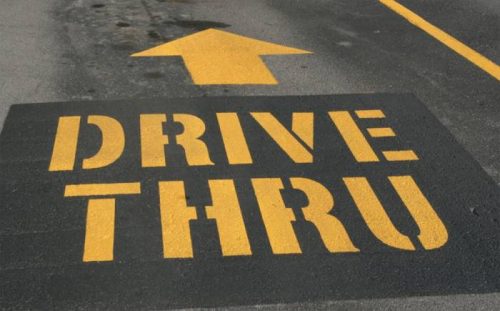Thru and Through are two of the most important words in English. They are used to describe a route or path that is taken from one place to another. In terms of grammar, the Thru and Through are used as an adjective, an adverb, and a preposition.
However, aside from these similarities between the Thru and Through, there are also some differences between them. In this article, we will discuss the differences between the Thru and Through in detail. We will look at their meanings, what they are used for, how they are used in English grammar, why they are different, and how they are related to each other.
So let’s begin.
Summary Table:
| Thru | Through |
| Is an informal word used in everyday conversation | Is a formal word used in writings and conversations alike |
| Is a colloquial word that means to go through something with the intention of reaching a goal | Usually used as a preposition that means to go through or pass through something |
| Appropriate for a certain context involving restaurants or “drive-throughs” | Appropriate for things that have to do with time and distance |
Definitions:

Before we talk about the differences between “thru” and “through”, let’s first define what we mean by “thru” and “through.” To do this, we need to take a look back at the definitions and meanings of these two words, what they are in terms of parts of speech, and what their functions are.
What Is “Through”?
A through route is a path that you take in order to reach your destination. For example, if you are taking a road trip from point A to point B, and the route goes through various cities, towns, and villages along the way, then it would be called a through route. You may also hear the word “through” used to describe a person who has a certain skill or talent. For example, someone may say that the actor is a “through and through” when they are describing their acting ability.
In the English language, “through” is a preposition, adverb, and adjective. It is a preposition because it precedes the noun that it modifies. For example, if I say “I went through London,” then this means that I was traveling through London.
In “the sirens are screaming through when the thunder is rolling,” it is an adverb because it describes an action. In addition, in “a through road,” it is an adjective because it describes a particular quality of the road.
What Is “Thru”?
Similar to “through,” “thru” or “thru’ing” means to travel through. For example, if you go by car, train, or plane and you go through various cities and towns as you are traveling, then it would be called a through route.
If you are talking about the use of a machine, then it would be called “thru” or “thru’ing.”
Thru is also used to describe something that passes through. For example, if I say “a bunch of guys went thru” when I am talking about a party that went on last night, then this means that there were many people at the party. In addition, “thru” is also used to describe an action that is completed in one go. For example, if I say “I got thru” when I am talking about completing a task successfully, then this means that I completed the task.
“Through” and “tru” are essentially the same in terms of meaning, but “thru” is an informal version of “through.” Nowadays, we can see the usage of the word “thru” like in the word “drive-thru” which means that you can get something in a fast and easy way. In this case, “thru” is still more commonly used than “through.”
Thru Vs. Through:
As you may know, there are several words that have a similar meaning. For example, “thru” and “through” are both used to describe a course of action or a journey. However, they are used in different ways. Now, let’s take a look at the differences between “thru” and “through.”
The Meaning
“Through” means to go through or pass through something. For example, “through the forest” means “to go through the forest.” In other words, it is used to say that someone or something has passed through an area of land (e.g., a street).
Similar to “through,” “thru” also means to go through something with the intention of reaching a goal. For example, “I’m going to try and get thru the whole day without getting distracted.
”
How They Are Used In English Grammar
“Through” is mainly used as a preposition. For example, “The meeting will start at 10 a.m. through 12 p.m.” In other words, it is used to say that something will be going on for a period of time (e.g., meeting) and the action of going through the specified area (e.g., day).
On the other hand, “thru” is a colloquial word that is used as a preposition and an adverb. For example, “You should go thru this website to get more information.” In other words, it is used to say that someone or something will be going from one place to another.
Formal And Informal
“Through” is a more formal word that is used in writing. However, “thru” is a more informal word that is used in speech.
People often use “thru” in their everyday conversation, for example, “Thru the weekend, I’m going to go hiking.”
The Context
While “through” is suitable for a variety of contexts, “thru” is more appropriate for some situations. “Thru” usually refers to drive-throughs, or what we are familiar with as a fast food place, “drive-thru.” For example, “Let’s go to the drive-thru.”
On the other hand, “through” is more appropriate for things that have to do with time and distance. For example, “I went through the whole year without getting sick.”






